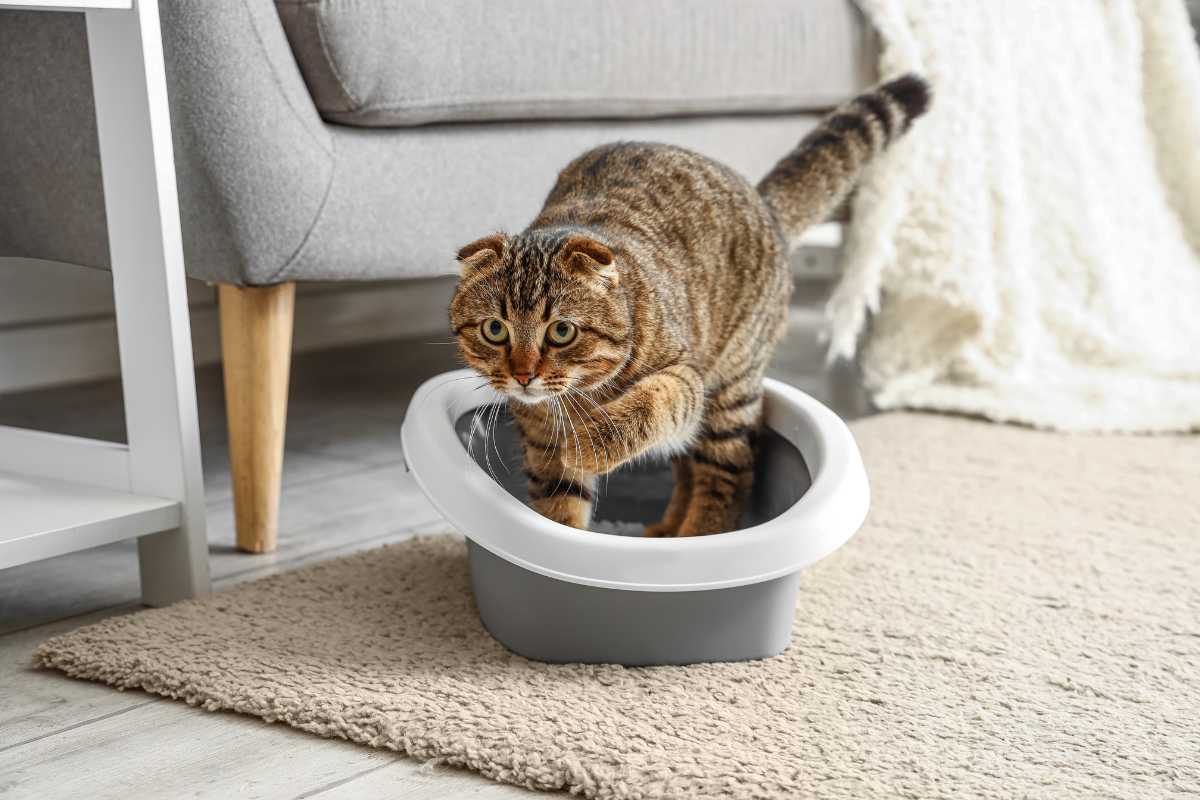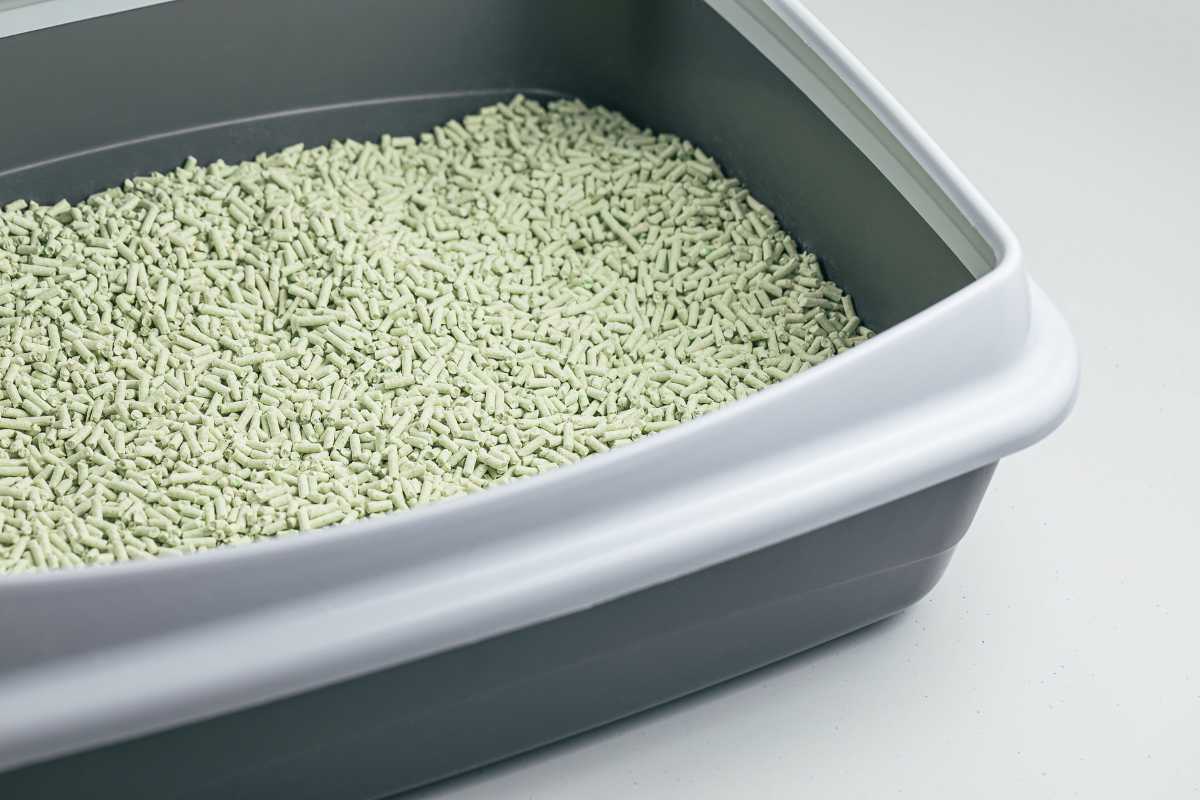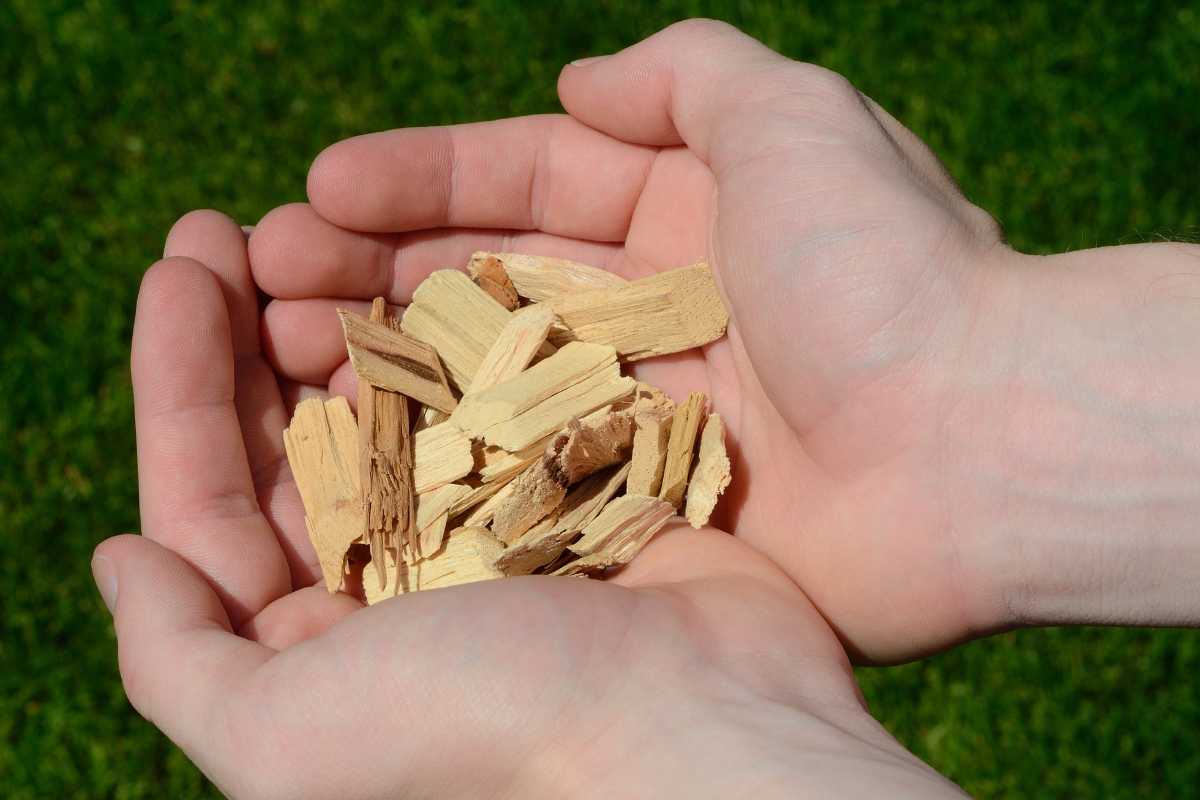If you have cats at home, then you might already know that there’s no need to throw away their waste. In fact, you could even turn cat waste into something useful.
This article will cover the benefits and dangers of composting cat poop and litter, as well as how to compost cat poop and cat litter.
- Related Article: Guide to Composting
Can You Compost Cat Poop and Cat Litter?

Most gardeners will say that you should not compost cat poop and cat litter. The potential dangers from pet waste outweigh the benefits.
That being said, if you are determined to compost your cat’s poop, then it is definitely possible.
Cat poop is an organic material. It contains many beneficial nutrients, including the same amount of potassium and phosphorus as cow manure and over twice as much nitrogen.
However, unlike cows, cats are carnivores, and meat consumption makes their feces less than desirable to add to the compost pile.
The issues with cat poop come from the parasites and diseases that are contained within the poop. Cat poop contains many pathogens that are harmful to humans.
Most types of cat litter are not suitable for composting, including non-clumping, scented, or clay-based litter. Most litter contains chemical additives that are not good for composting.
The only ones suitable for compost are natural, unscented litter made from sawdust or wheat. These are biodegradable cat litter and are usually plant-based, so they’re environmentally friendly.
Benefits of Cat Poop and Cat Litter
As mentioned above, cat poop does contain many beneficial nutrients. However, the most significant benefit of composting cat poop is the environmental impact.
Millions of Americans have cats as pets, and a growing number of cat owners are seeing the effect loose cats have on wildlife, so they are opting to keep their cats indoors more.
This creates a large amount of cat waste that ends up inside plastic trash bags and in the landfill. Obviously, it would be better to let your cat’s waste decompose naturally and be a usable fertilizer for your garden.
Dangers of Cat Poop and Cat Litter
The biggest issue with cat poop is that it contains a parasite called Toxoplasma-gondii that causes Toxoplasmosis.
While this infection is usually harmless, it can lead to severe problems for those with a weak immune system and for pregnant women. Composting litter isn’t recommended if you have health issues.
Cat poop can also contain other parasites, like intestinal worms, as well as other diseases. You should always be careful when handling cat poop or litter box trays. Wear gloves where possible, and always wash your hands thoroughly.
If you’re composting cat litter and poop, it’s best not to use the finished compost in your vegetable garden soil. For your edible garden that’s growing edible plants, the potential bacteria and pathogens that could be passed on to your vegetables would not be safe.
How to Compost Cat Poop and Cat Litter
Although many people believe that the dangers of composting cat poop far outweigh the benefits, you may have your mind set on composting your cat’s waste.
Here are the steps to successfully and safely compost cat poop and litter.
1. Choose your cat litter carefully

Only use biodegradable cat litter if you are composting it. This will rule out many popular, cheaper litter – including odor neutralizing and perfumed varieties.
First things first — you’ll want to change out your cat’s litter for one made from natural materials. It could be pellets made from recycled newspapers, pine, corn, wheat, or any combination thereof. These could be called paper litter or pellet litter, or litter made from plant materials.
Pellet, biodegradable litter is less harmful to cats and the composting process. Most clay litter contain silica dust and chemical additives that may be harmful for to your cat’s health.
Bear in mind that if you choose a natural litter, it will smell. There is no way around the foul smell, hence the popularity of odor neutralizing litter.
You basically have two options: get used to the smell of cat waste or change your litter tray at least once every day. This is probably one of the top reasons people give up composting their cat’s feces.
2. Use a separate compost bin for your cat waste
This is my personal opinion, and you will find others who will say it’s okay to add it to your regular composter.
However, I would like to have a separate pet waste compost bin to ensure that I leave enough time for the harmful bacteria, parasites, and diseases to be dispersed before using it as compost.
Some sources say that you can use compost containing cat poop in as little as six months if you use hot composting methods.
Personally, I would not be able to trust that the cat poop will be completely safe in this time – especially if you are using your compost for vegetables.
Cat waste can take up to 18 months to decompose properly, so I say it is worth having a separate bin to rule out any cross-contamination that may occur.
3. Add a layer of brown material every time you add cat poop into your bin

Even if your kitty litter is made from sawdust, it’s good to add a layer of brown materials as well. This can be sawdust, wood chips, soil, or even compost.
They will help your cat poop break down and make the end product better by slowing down the decomposition process caused by the high nitrogen content of the poop.
Nitrogen-rich ingredients are green material, so adding a layer of brown will help balance the compost.
4. Be patient during the decomposition process
WAIT! Time heals all wounds, and any organic material will decompose over time. The longer you can leave your cat poop to decay, the safer it will be to use.
If you have a separate compost bin specifically for composting dog poop and other pet waste, it won’t be too much of an issue waiting for it to decompose.
Many commercially available compost bins have a hatch in the bottom for you to extract the compost. These are the best type for composting cat poop, as you won’t want to turn over this compost. Something like this compost bin being sold online is good.
The longer you leave the poop to decompose, the better, so you don’t want to mix fresh waste with the old. Also, this compost will smell pretty bad while it’s decomposing, so not turning it over will be kinder for your nose!
Composting Cat Poop and Cat Litter Final Thoughts
There are many ways to compost cat poop and cat litter. It’s also good to know that cat poop has a lot of nutrients, which means it needs to be decomposed slowly to avoid creating ammonia gas.
If you do decide to compost cat poop, please be sure to follow these tips carefully, and make sure that you know how to safely handle the finished compost.
Here are more articles on composting that might interest you:
- How to Compost Paper
- How to Compost Bread
- How to Compost Dog Poop
- How to Compost Cheese
- How to Compost Halloween Pumpkins
Compost Cat Poop and Cat Litter FAQs
Can you compost cat poop and pee?
Yes, you can compost cat poop and pee. If you have access to a compost bin, you can put your cat’s waste in there. It’s best to put the cat waste and litter into a separate compost bin and only if the cat litter is biodegradable.
How do you dispose of cat poop?
You can dispose of cat poop by either taking it outside or putting it in a sealed plastic bag and throwing it away. Do not flush it down the toilet because it can clog pipes and cause plumbing problems. To clean up after a cat using a litter box, use a litter scoop to scoop out any feces and urine clumps from the bottom of the box and then put them into a plastic bag for disposal. After everything has been cleaned up, tie off the trash bag into a tight knot. To avoid odors and bacteria from leaking out of the bag, double-bag your scooped litter. Put in an outdoor garbage bin with a tightly fitted cover.
Can you put pet waste in compost?
Yes, pet waste can be put in compost because it contains nutrients that help build healthy compost for your garden soil. However, it’s better to separate your cat or dog’s waste from other household wastes. It’s best to have a separate pet waste compost bin because cat and dog feces can carry diseases such as salmonella, giardia, and toxoplasmosis. These bacteria are harmful to humans and animals alike, and to the plants and vegetables you’re growing.
Is cat pee bad for compost?
Cat urine is actually considered a beneficial ingredient when making compost. According to Composting Cat urine contains urea and ammonia, which help decompose the organic matter in the compost. However, there are some risks involved. Cats can transmit diseases from their urine, including toxoplasmosis, ringworm, and infections. It’s best to have a separate compost bin for pet waste.
How long does it take for cat poop to decompose?
Cat poop decomposes in about 6 months when using hot composting methods. But it’s best to allow it to decompose for at least 12-18 months. That’s why it’s best to set up a different compost bin for cat waste. Being sure to balance the compost with brown materials will help give it good balance.
Can cat poop be used as fertilizer?
Cat poop can be used as a fertilizer because it’s actually a good source of nitrogen for your garden. Using cat feces as fertilizer is generally frowned upon though because of potential disease transmission, so it’s best to only use it on non-edible plants like flowers.
How to neutralize cat feces in soil?
Cat feces in soil can cause problems when it comes into contact with plants, so it’s important to neutralize the cat poop. To neutralize, immediately remove the feces from the soil, putting it into a plastic bag, and throwing it away in the trash can. Mix the soil around the area, so any remains are spread around and not concentrated in one area of the soil.



We have three adult cats which are full-time indoor pets. They eat commercial cat foods, and rarely will eat any human foods. They are healthy. I hate putting all of their waste from their litter boxes into the trash to be carried to the landfill.
Can I use this cat box litter, including the poop and the urine as composted fertilizer for only flowering plants. We don’t make a vegetable garden so none of the cat waste would fertilizer for food. Thank you.
Hi Bob,
Yes, you can compost cat litter, including the poop and urine, to use as fertilizer for flowering plants and non-edible plants, but not for vegetable gardens or any edible crops if you do think about growing food in the future. Great to see another like-minded person not want to carry litter to the landfills!